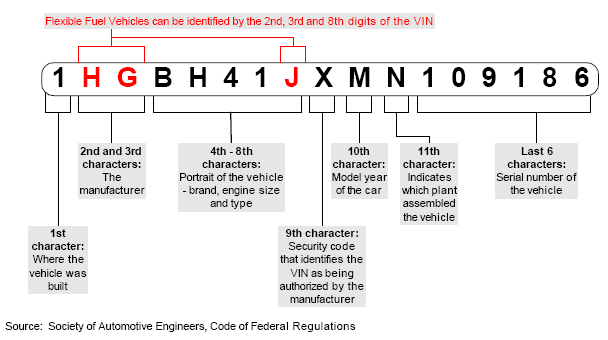

The Significance of Verifying a Used Car’s VIN Before Buying
In the world of cars, there’s a secret code that reveals a vehicle’s unique history and characteristics – the Vehicle Identification Number (VIN). Imagine it as your car’s personal ID, a 17-character code that holds the key to its past. Let’s dive into the world of VINs, why they matter, and how you can decode them.
Why VINs Matter?
With over a billion cars roaming the Earth, keeping track of their stories is crucial. Your car’s VIN is like a diary that records every significant event in its life, from accidents to oil changes. It’s a valuable tool for anyone, especially those with used cars.
What is a VIN?
The VIN is a 17-character code composed of digits and capital letters, acting as a unique identifier for a vehicle. No two vehicles share the same VIN. If you ever come across a VIN with less than 17 characters, double-check to ensure accuracy. Shorter VINs likely belong to pre-1981 vehicles.
Where to Find Your Car’s VIN?
Locating your car’s VIN is a breeze. Stand on the driver’s side, gaze at the dashboard where it meets the windshield, and there it is. If not, swing open the driver’s side door and inspect the door post where the door latches when closed.
Decoding the VIN: A Step-by-Step Guide
World Identifier Manufacturer (WMI)
The first digit of the VIN signifies the country of origin or the final processing plant. For instance, 1, 4, and 5 represent the U.S, 2 signifies Canada, and 3 stands for Mexico. The Society of Automotive Engineers assigns WMIs to countries and manufacturers. The second digit indicates the manufacturer, like ‘G’ for General Motors or ‘B’ for BMW.
Type of Vehicle
The third digit, combined with the first two, identifies the vehicle type, whether it’s a truck, SUV, or car. For example, a Chevrolet truck VIN would start as ‘1GC,’ where 1 is for the U.S, G for General Motors, and C for Truck.
Vehicle Descriptor Section (Digits 4-8)
Digits 4 through 8 provide details about the vehicle, such as model type, restraint type, body type, engine, and transmission.
Check Digit/Security Code (Digit 9)
The ninth digit is a check digit or security code, a code generated by the manufacturer to verify the authenticity of the entire VIN.
Vehicle Identifier Section (Digits 10-17)
Digits 10 through 17 form the Vehicle Identifier Section. The 10th digit represents the model year, and the 11th digit is the manufacturer’s plant code. Digits 12 through 17 are unique identifiers the vehicle acquires during production.

Why Check Your Car’s VIN?
Whether you’re a proud owner of a new vehicle or navigating the used car market, checking your car’s VIN is essential. It unveils a treasure trove of information about your vehicle’s past, helping you make informed decisions.
For Used Car Owners: Unlocking the Past
If you own a used car, a VIN check can be a game-changer. It reveals whether your vehicle has a history of accidents, how many times it has changed hands, and its original production details. Worried about odometer tampering? A VIN check can disclose if the mileage has been rolled back or flipped.
For Prospective Buyers: A Peek into the History
Thinking of buying a used car? Ask for the VIN history to get a comprehensive understanding of the car’s past. It’s like peering into a crystal ball that shows you if the car has been in accidents, undergone major repairs, or had its odometer tampered with.
For New Car Owners: Building Trust
Even if your car is fresh off the assembly line, your VIN holds valuable information. Use it to establish trust with potential buyers when you decide to sell. It’s a testament to your car’s origin, construction date, and, most importantly, that there are no hidden skeletons in its closet.
How Can You Decode Your VIN?
Decoding your VIN is like deciphering a secret language. Each character tells a part of your car’s story. Let’s break it down:
- World Identifier Manufacturer (WMI): The first digit signifies the country of origin or processing plant. For instance, 1, 4, and 5 represent the U.S, 2 is for Canada, and 3 is for Mexico. The second digit represents the manufacturer.
- Type of Vehicle: The third digit, combined with the first two, identifies the vehicle type, such as truck, SUV, or car.
- Vehicle Descriptor Section (Digits 4-8): These digits provide detailed information about the vehicle, including model type, restraint type, body type, engine, and transmission.
- Check Digit/Security Code (Digit 9): This digit ensures the authenticity of the entire VIN.
- Vehicle Identifier Section (Digits 10-17): The 10th digit represents the model year, the 11th digit is the manufacturer’s plant code, and digits 12 through 17 are unique identifiers acquired during production.
Conclusion
The Vehicle Identification Number is your car’s personal storyteller. It reveals secrets about its past, helping you make informed decisions whether you’re a current owner, a prospective buyer, or planning to sell your vehicle. Understanding your VIN is like holding the key to a treasure chest of information, ensuring you get the most out of your automotive experience. So, take a moment to decode your VIN and unlock the mysteries of your car’s journey.
Categories
- Biography (4)
- Car Reviews (31)
- Car Tips (53)
- Classic Cars (45)
- Net Worth (12)
- Transportation (19)
Recent Posts
Related posts


Top 5 Reliable Car Dealerships in Lagos: Your Ultimate Guide

How to Buy a Tokunbo Car in Nigeria Without Getting Scammed








